Learn what we really know about this complex, confusing, and often frustrating condition.

WILMA IS A SWEET, sensitive, and generally well-behaved 14-year-old Quarter Horse mare. So when she started tossing her head, her owner turned to the Internet for advice. She was especially excited when she found a Web site offering a quick-fix. When that didn’t work, she contacted an animal communicator. But poor Wilma just kept right on shaking her head.
Wilma’s owner finally called the vet. “Wilma flips her head up and down, snorts, and sometimes acts like an insect is flying up her nose,” she explained. “On occasion, she even strikes at her nose with her front leg.” With the help of her vet, Wilma’s owner found an explanation for her horse’s symptoms: they’re the classic signs of idiopathic headshaking syndrome.
In spite of years of research, idiopathic headshaking syndrome remains one of the most mysterious conditions that can impact your horse. As with any medical problem that’s confusing to diagnose and difficult to treat, a suspicion that your horse has headshaking syndrome is likely to generate all kinds of untested theories, questionable suggestions, and questionable treatment recommendations. Here I’ll answer five common questions about this condition, discuss treatment options, and describe a promising new treatment for the condition.
What does it look like?
Denne historien er fra January 2018-utgaven av Horse and Rider.
Start din 7-dagers gratis prøveperiode på Magzter GOLD for å få tilgang til tusenvis av utvalgte premiumhistorier og 9000+ magasiner og aviser.
Allerede abonnent ? Logg på
Denne historien er fra January 2018-utgaven av Horse and Rider.
Start din 7-dagers gratis prøveperiode på Magzter GOLD for å få tilgang til tusenvis av utvalgte premiumhistorier og 9000+ magasiner og aviser.
Allerede abonnent? Logg på
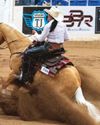
The Horse
LIFE TAKES US DOWN different paths, but I seem to be on just one, which is with the horse.
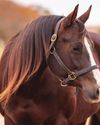
Decoding the Diseases Examined by AQHA's Six-Panel Test
The six-panel test is a diagnostic tool used to assess the genetic predispositions of horses. It's meant to discover if a horse has or is a carrier for certain hereditary diseases and traits.
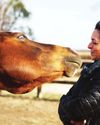
Love is Good
All horses are assured a hopeful, compassionate plan of care at This Old Horse, a program that helps not only horses but people, too.
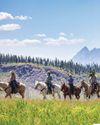
HORSE PACKING 101
Take your trail riding to the next level with nature-filled adventures in the back or front country.
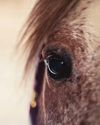
NEW HORSE; NEW PROBLEMS
Anew horse can bring excitement and energy to the barn, and even reinvigorate your passion. However, there are also a myriad of new problems that can come with a new horse, so learn how to introduce him properly to avoid these common issues.
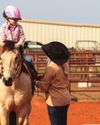
First-Timer Tips
Heading to a young rider's first event with their horse can be intimidating. Use these myths and truths to make it smoother sailing for yourself and your young rider.
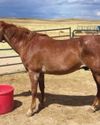
Re-Rescued: Aslan's Story
One special gelding learns about three different types of love during his rescue journey.
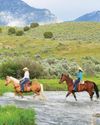
The Country's Hottest Horse Motels
Take your next trail-riding adventure to the next level by staying at one of these six horse motels across the United States.
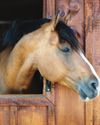
Outbreak! What We've Learned
Learn how disease outbreaks in recent years have changed the horse industry, and why it's so important to play your part when it comes to disease prevention efforts.
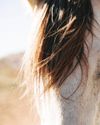
TRAINING THE SENSITIVE HORSE
Shift your mindset and grow your sensitive horse's pressure-handling skills to improve his confidence and your riding enjoyment.